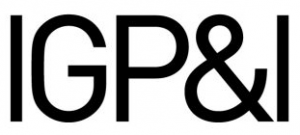Gard and other P&I Clubs have seen a recent increase in the number of discoloration claims involving DDGS (distiller’s dried grains with solubles)shipped to China. Shipowners may face having to post millions of dollars as security to avoid arrest or detention of their ships.

Wave of DDGS discoloration claims in China
Published 02 February 2016
What is DDGS?
DDGS is the dry solid residue left over after the production of bioethanol by fermentation of grain. It is an ingredient in animal feed containing useful proteins and fibre. It is said that the production of DDGS can involve a wide range of temperatures and that a dark colour may be indicative of overheating. Colour variations may also result through blending different grain types. It remains unclear whether colour variations have any effect on quality.
The colour issue – a quality indicator in China
The key specifications for DDGS quality concern protein and fat contents - however, receivers in China also consider its colour to be an indicator of its nutritional quality. They may even be prepared to pay a premium price for light coloured DDGS. Colour specification is often measured using the Hunter L (lightness) scale and it is thought that Chinese receivers are requiring DDGS to have a Hunter L value of greater than 50 (light coloured DDGS).
The claims
If parts of the cargo are darker than the rest, Chinese receivers may claim that the dark DDGS has been damaged, for example by heating on board the vessel. If a clean bill of lading was issued - evidencing that the cargo was in apparent good condition on loading - it appears to be relatively straightforward to obtain a vessel arrest order in the local Chinese courts. Most of the claims relate to shipments from Louisiana in the US.
Gard’s comments and recommendations
We have seen other inherent vice cases in China where local courts sometimes take the view that, where cargo defects are quality related or of a pre-shipment origin, the master should have prevented the affected cargo from being loaded or claused the bills of lading. This has happened despite bills of lading not being evidence of quality and involving defects which are not reasonably apparent to the master. In reality the master is faced with a number of challenges:
loading is often carried out very quickly, conditions are usually very dusty and sometimes it is dark, all of which make it difficult for the master to judge the condition of the cargo
the master is not a cargo expert
shippers (needing clean bills of lading to avoid losing sales under letters of credit) will insist the bills cannot be claused - and in the case of DDGS, will argue that discoloration is a quality issue and a normal outcome of the DDGS production process.
We recommend Members and clients carrying DDGS to China to try to take the following steps:
Loading
Get a copy of the shipper’s certificate of quality
Get a copy of the test certificates evidencing water and oil content of the cargo from the shippers together with the usual International Maritime Solid Bulk Cargoes (IMSBC) Code declaration. DDGS is listed in the IMSBC Code as a Group C cargo provided the moisture content is no more than 13 per cent and the oil no more than 11 per cent.
The IMSBC Code states the need to keep the cargo dry and to not load or discharge during rainfall. Any cargo which is obviously wet, should not be loaded as at higher levels of moisture and/or oil there may be a risk of self-heating
Try to avoid loading dark coloured DDGS and insist shippers provide only light coloured DDGS. If shippers refuse, contact Gard so that a local surveyor can be appointed
Try to avoid loading DDGS which has been heat damaged, burnt or which has a noticeably higher than ambient temperature
Keep a good photographic record of the cargo during loading
Include the usual “quality unknown” reservation in bills of lading and an express reference to English courts/arbitration and English law as the forum/law for disputes - or at least incorporate a charterparty including such a term.
Cargo care
Although the IMSBC Code does not require stowage away from sources of heat, over-heating may lead to discoloration, therefore:
Operate fuel oil heating systems only when necessary and within normal operational limits
Switch off and isolate hold lights
Properly ventilate the holds and ensure the hatches are tight
Take cargo temperatures every few days during the voyage - if safe and possible
Keep good records in relation to all aspects of cargo care, including bunker temperatures and ventilation records.
Discharge
If the receivers protest on the basis of discoloration:
Inform Gard immediately so a local surveyor can be appointed. Gard will also obtain expert advice relating to the discoloured cargo and arrange representative sampling
Follow up closely the receivers’ mitigating actions.
If the ship is chartered
There may be a potential recourse against the charterers for any cargo liability incurred by owners in China. Therefore owners should put the charterers on notice and invite them to join in a discharge survey. Gard can assist in seeking counter-security from charterers.
Owners may be able to obtain an indemnity and hold harmless clause in the charterparty for inherent discoloration of DDGS shipped to China and/or a letter of indemnity for when charterers order to load a darker coloured quality of DDGS.
Charterers are advised to make it clear in underlying sales contracts that certain levels of discoloration may exist, so a light Hunter L value is not guaranteed throughout the cargo.
Litigation in China
When faced with litigation in China, Gard can advise the Member or client on steps to try and protect owners or at least put them in the best negotiating position.
Whilst the courts in China often refuse to uphold a dispute resolution clause for a foreign forum, it may be possible, if done at an early stage, to obtain an Anti-Suit Injunction (ASI) from the English courts ordering the receiver/subrogated underwriter to refrain from continuing the proceedings in China in defiance of an English forum clause. The order usually makes clear that if disobeyed the receiver/subrogated underwriter may be fined or have assets seized. Company directors may also be imprisoned, so if the receiver/subrogated underwriter does business in the UK, this is a potentially powerful tool.
In parallel, court/arbitration proceedings can be commenced in England, where an inherent vice case may have a different result. A judgment/award can be obtained for damages equating to the liability and costs of the proceedings in China, which would not have been incurred in England, and steps can be taken to try and enforce them against assets outside England, e.g. where states are party to the New York Convention on the Recognition and Enforcement of Foreign Arbitral Awards.
Conclusion
A reported drop in the price of DDGS may be another factor which is fuelling these claims. It is too early to say whether discoloration itself will actually cause receivers in China any losses. Ships appear to be increasingly targeted for issues essentially arising under sales contracts, therefore owners and their Clubs have every reason to co-operate in forming a united front against this particular wave of claims.
Please take a second to rate this article based on how useful and relevant it is by clicking on the stars in the top right hand corner.
Questions or comments concerning this Gard Insight article can be e-mailed to the Gard Editorial Team.




